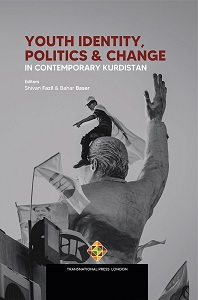Youth Radicalization in Kurdistan: The Government Response
Youth Radicalization in Kurdistan: The Government Response
Author(s): Kamaran Palani
Subject(s): Politics / Political Sciences, Governance
Published by: Transnational Press London
Keywords: Iraqi Kurdistan; disillusionment; government reforms; insufficient policies; political; historical; Kurdistan; dissatisfaction; Kurdish; authorities; identity; Kurds; political class; anti-authority;
Summary/Abstract: Iraqi Kurdistan has become increasingly polarized in recent years, fueled byrising youth dissatisfaction and disillusionment with the authorities. Some factors to explain the tremendous pressures youth are facing (see Said 2019) include the post-2014 financial crisis, a lack of effective anti-corruption government reforms, insufficient policies to empower youth (see Jiyad, Küçükkeleş, and Schillings 2020, 40–44), and widening political divisions. It is not the historical struggle for independence from the Iraqi state that defines the priorities and dreams of the people of Kurdistan today but, rather, youth dissatisfaction and anger toward the Kurdish authorities. A new identity is thus emerging among young Kurds within which the political class is viewed as “the other” (Palani 2021, 4). This anti-authority sentiment translates into different manifestations of resistance against, and disengagement with, political processes, ranging from emigration to Europe (NRT 2020), protest movements (Costantini 2020, 6), and potential youth radicalization, which is the main concern of this chapter.
Book: Youth Identity, Politics and Change in Contemporary Kurdistan
- Page Range: 223-237
- Page Count: 15
- Publication Year: 2021
- Language: English
- Content File-PDF

